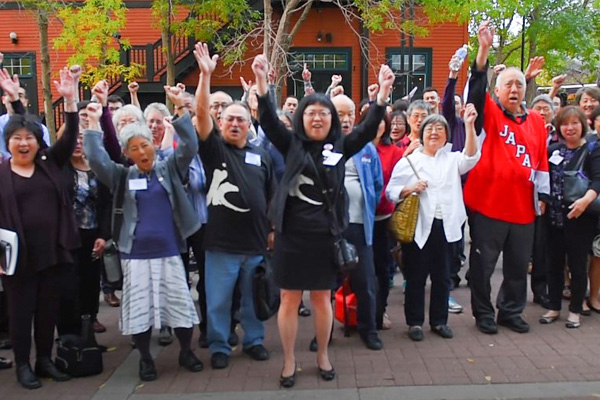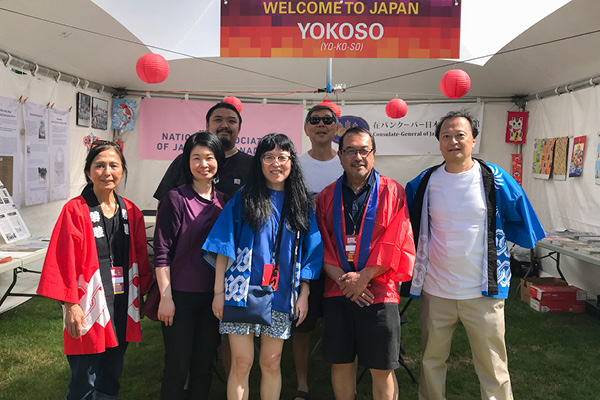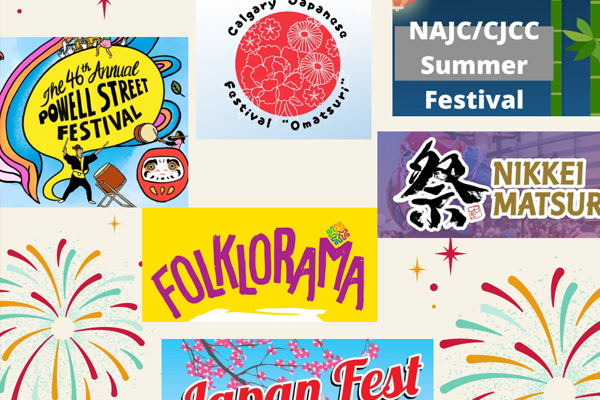by Lorene Oikawa
At the time of writing this message, the British Columbia and Saskatchewan general elections just wrapped up with Election Day on October 24 and 26, respectively.
In BC, the NDP are projected to win as many as 55 of the province’s 85 seats. It takes at least 44 seats to form government. The Liberals are leading in 29 seats and the Greens are projected to win 3 seats. Final results will not be known until mid-November.
In Saskatchewan, the Saskatchewan Party were leading or elected in 46 and that number jumped to 50 with some of the mail-in ballots which have been counted. It takes 31 of 61 seats to form government. The NDP were leading or elected in 11 seats. Some of the seats are too close to call and final results will be released on November 7.
The option to request mail-in ballots proved to be a very popular choice in both provinces because of the COVID-19 pandemic.
Elections BC said compared to the last election when 6,500 ballots were mail-in, for this election, there has been a huge response with 725,000 voters who requested vote-by-mail packages. There are 600,000 ballots and absentee ballots that need to be first screened and reviewed to ensure there isn’t any duplication and Elections BC expects to start counting the first week of November. It will take several days to complete the count and to get the final results. More than a million people had voted by mail or at advance polls by the day before Election Day. 3.5 million people are registered to vote in BC.
In Saskatchewan, 61,225 voters requested mail ballots. However, Elections Saskatchewan said the numbers are not uniform across the province with a low of 23 in Athabasca and a high of almost 2,700 in Regina Pasqua. They will prioritize constituencies which are very close, but have indicated that counting mail-in ballots will take more time because of deciphering handwriting of voters who had to write in the name of the candidate they chose. The count of vote-by-mail ballots will be split into two rounds of counting.
Thank you to the non-partisan Elections workers who set up secure, safe polling stations for advance voting and then Election Day. I voted at an advance voting polling station in Surrey, BC, and it was safe and fast. No waiting.
Also, thank you to the volunteer campaign workers working on all party campaigns. You are also part of the democratic process encouraging voters to vote.
It’s your vote and your voice to be a part of the democratic process. Remember also that polling and surveys don’t count, only votes count. Make an informed choice and get out and vote.
I am hoping for a good voter turnout for the US election in November 2020. So much is at stake and it is concerning to hear of some states imposing restrictive voting measures which target Black, Indigenous, and racialized people.
Remember that voting rights have not existed for everyone at the same time. In 1947, Chinese- and Indo-Canadians finally got the right to vote. Japanese Canadians didn’t get franchise until 1949 – four years after the Second World War ended. About 22,000 Japanese Canadians, who were forcibly uprooted, dispossessed, and interned, were finally allowed to vote and return to the west coast if they had the means. First Nations peoples in Canada didn’t get to vote until 1960. Inuit were able to vote in 1950, but they couldn’t vote until 1962 because the government didn’t set up any ballot boxes in their communities.
To keep democracy alive, we need to be participating in the process such as voting for all levels of government and engaging with government after the election.
The NAJC has been speaking with the Federal Anti-Racism Secretariat and we participated in a virtual town hall session on COVID-19 and spoke about systemic racism. We’ve also been participating in discussions about the need for support for non-profit and charitable organizations to assist their racialized communities during the pandemic. We must be included in the dialogues and the stories of our community must be known as part of Canadian history.
Our BC Redress discussions are on hold while the provincial election is underway. Once we have the final election results in November, we will resume non-partisan talks. The latest update, before the election was called, is posted on the NAJC website. https://najc.ca/bc-redress-update/
This year’s Remembrance Day event will be different because of the pandemic. There will be a limited gathering (invitation only) at the cenotaph at Stanley Park. The event will be live streamed on YouTube and there will be acknowledgement of the 100th anniversary of the Japanese Canadian Cenotaph. Please join the online event (link posted at najc.ca) and take a minute to remember the men and women who served our country.
To keep updated on NAJC news, online programmes, and events, sign up for NAJC e-news at https://najc.ca/subscribe/ If you have an idea for our online sessions and NAJC Chats, let us know, email national@najc.ca Keep safe. Be kind.



